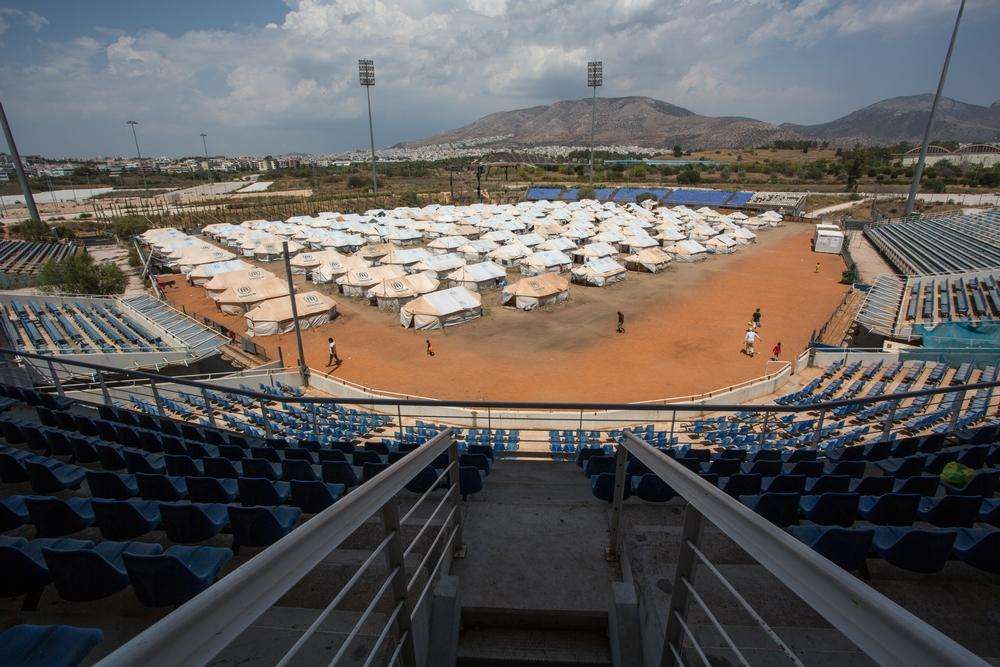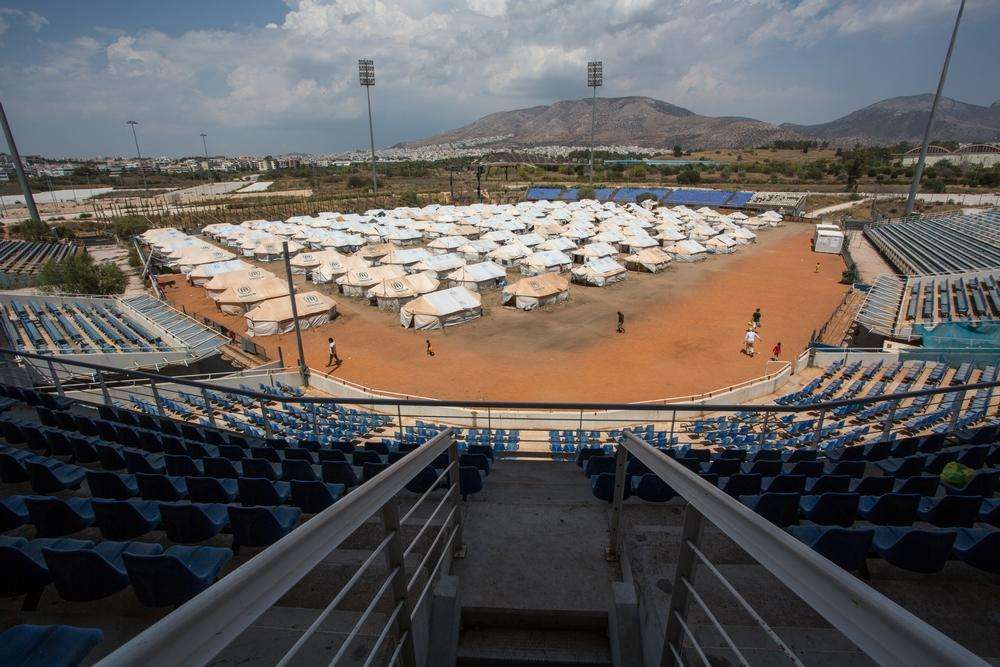After spending most of his life displaced from his home in Afghanistan, 27-year-old Sharif finally found refuge in Sweden in 2013. But when he learned that thousands of Afghan refugees are currently stranded in Greece, he decided to abandon his newly stable life to help. He now works with Doctors Without Borders/Médecins Sans Frontières (MSF) at the Elliniko refugee camp in Athens. Here, he tells his story.
My parents and I fled Afghanistan in 1998 to seek refuge in Pakistan. In 2006, when I was 17, I left Pakistan, because I was in danger there. I wanted to go to Europe, dreaming of a better life. I spent two years trying to reach Greece, but each time I was caught by Iranian or Turkish security forces and sent back to Afghanistan. But I had enough money to pay the smugglers, so I kept on trying. My goal was to reach Sweden—I wanted to be as far as possible from Afghanistan.
I arrived in Greece for the first time in 2008, and for the next three years it was a constant struggle to continue my journey. [While traveling through] Greece, the former Yugoslav Republic of Macedonia, Slovakia, Hungary, and Austria, I’ve been arrested, detained in horrific conditions, beaten, threatened, and humiliated. I was even sent back to Afghanistan. Once I almost drowned. Many times I thought I was going to die. But I was stubborn, and it saved me. I’d had all those years of living underground, hiding from police, smugglers, thieves, and violent extremist militias—trying to survive.
I eventually arrived in Sweden in 2011 and applied for asylum there. At first I was turned down. I ran away to Denmark, where I was caught and kept in a detention center for a month, before being deported back to Sweden.
Since 2013, I’ve been recognized as a refugee in Sweden and have a permanent residence permit. My life has changed completely. I can study, work, find accommodation, and live a decent life—all legally.
When the migration crisis started in Europe, because of my personal experience I tried to help refugees in Sweden. Then I heard that many Afghan people were stranded in camps in Greece. In the media they were talking about a human catastrophe. So I decided to go back.
When I arrived, I was employed by MSF as a cultural mediator in Elliniko camp, where around 3,500 refugees, mainly from Afghanistan, are staying. Soon I was promoted to health promotion officer. I love my job with MSF. I’m learning how to educate people about their health. I listen to people, I report on their problems, and I try to improve their situation. These people have hopes and expectations, but they are facing a big wall. I feel very hopeless sometimes.
After all I went through, the one thing I want is to see my parents again. I was just a child when I had to leave them. My family was supposed to join me in Sweden and we started the family reunification process. But before receiving all the papers, they had to flee Pakistan because their lives were at risk. They are now in Turkey. I’m happier because they are in a safe place. I’m in touch with them every day over the phone. I’m my mother’s only child. She misses me very much and I miss her too.
"I’m learning how to educate people about their health. I listen to people, I report on their problems, and I try to improve their situation. These people have hopes and expectations, but they are facing a big wall. I feel very hopeless sometimes."
Sharif





